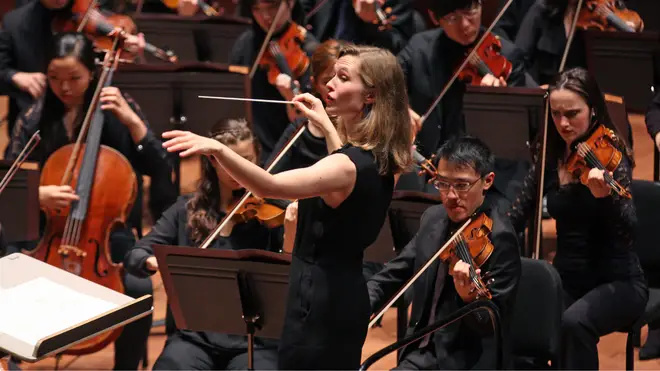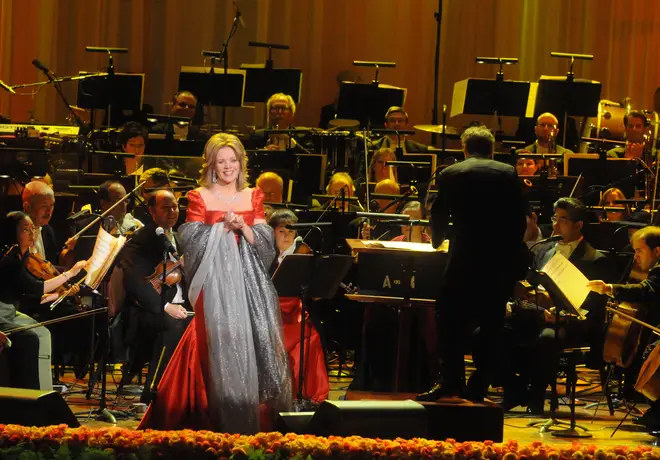On Air Now
Calm Classics with Myleene Klass 10pm - 1am
27 October 2023, 10:52 | Updated: 27 October 2023, 11:09

The real reason why orchestras usually wear black on stage...
Go to a pop concert, and you’re guaranteed to see at least three outfits coated in sequins. At a classical or orchestral concert, most of the musicians are in head-to-toe black (and maybe a dash of white).
We’re here to explain why.
When orchestras used to play for noble households in the early 18th century, much like other ‘servants’ in the household, they wore a uniform – and that uniform was generally a black-tie tuxedo.
It’s worth reminding ourselves that in the 18th century, only men were permitted to play in an orchestra. So, when women began to play in professional orchestras from around the mid-20th century, their onstage uniform naturally followed suit – which is why most women musicians also wear either a smart black dress or skirt, or a white shirt and black trousers.
It might not seem the most exciting colour palette to wear on stage now, but since the 18th century, black and white dress has been considered smart and classic, and most importantly, it doesn’t draw any ‘unnecessary’ attention to the musicians.
Read more: Why do orchestras tune to an ‘A’?

Phenomenal 25-year-old maestro Nicolò Foron wins international conducting competition
Here lies the crucial argument: that orchestra players wear black, because audiences want to enjoy the sound of the music – and the sound of the music alone. Many music lovers believe absolutely nothing should distract from that, not even the performers themselves.
Playing in an orchestra is a group effort. A team of musicians, working in harmony towards the collective goal of producing a beautiful performance.
The only stage performer who shouldn’t wear black and white in a classical concert is, of course, the soloist. The soloist is the ‘special guest’ of the night, the beautiful beacon that you should be looking at.

But if that’s the case, if the audience only wants to concentrate on the sound created by the orchestra, and not the visual spectacle, why not hide the musicians out of sight completely? Why not put them in the band pit, like in any opera or musical theatre production? (Sorry orchestral players, we are making a point here – we promise.)
Many a classical concert audience will find that they enjoy watching skilled musicians at work – much like restaurant-goers enjoy watching their sushi made in front of them. It’s impressive, and you get the chance to fully appreciate what you’re paying for.
I love watching an orchestra play music. Seeing the passion and talent of so many people moving and playing as one. Just floods me with all the emotions.
— Francis (@akaTheOtherGuy) August 4, 2023
So, if we enjoy watching musicians play for their skill, shouldn’t they, as the providers of entertainment, be the ones to decide what they wear?
If we are happy to watch them perform onstage, shouldn’t we also be happy to watch them express their art in the clothes that make them feel most confident and comfortable? Is the reason we wear concert blacks down to a now-outdated tradition?
Or perhaps it’s not about distractions at all. Perhaps it’s as simple as the cellist, Naoya Kanai, says...

It’s as good a reason as any.